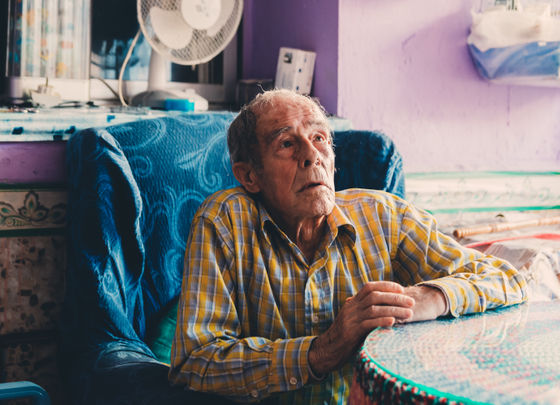Research shows that 30% of dementia patients are unaware, so what should you do if you think a family member may have dementia?

If you meet an elderly parent or relative for the first time in a long time and find that they are forgetful, or that they are fashionable but no longer care about their appearance,
More than a third of people with dementia don't know they have it – what to do if you suspect your partner has the condition
https://theconversation.com/more-than-a-third-of-people-with-dementia-dont-know-they-have-it-what-to-do-if-you-suspect-your-partner- has-the-condition-219172
The UK Dementia Committee reported in December 2023 that around 36% of people with dementia in the country are undiagnosed. This report was intended to provide medical and nursing care professionals with information on how to detect the early symptoms of dementia, but dementia is also a major concern for those close to the patient.
Professor Kate Irving, a clinical nurse scholar at Dublin City University in Ireland, says, ``Dementia symptoms vary from person to person, so it's important to know what your loved one's daily life is like. 'Becoming sloppy is different from someone who was already sketchy becoming a little more sketchy.'

Memory problems are well known as an early symptom of dementia, but stress and sad events can affect memory, and cognitive function changes with age, so forgetfulness may not be the cause. This does not necessarily mean that dementia has started. However, blaming it on other causes such as stress can cause signs of dementia to be overlooked, a phenomenon experts call ``diagnostic over-shadowing.'' .
In most cases, dementia progresses over a period of several months to several years, so if a problem such as taking a long time to remember something occurs over a short period of a few days to a few weeks, it may be considered that it is not dementia but a more serious condition. There is a possibility that something is wrong, so you need to see a doctor right away,' Irving said.
On the other hand, dementia is one of the biggest fears in modern society, and people tend to avoid talking about it for fear that the person will no longer be the person they are. Also, when talking about it, it may be done in a way that is not helpful to the person, such as taunting or embarrassing them, or they may only tell other family members and not the person themselves.
Over time, these misunderstandings can develop into a loss of trust, making it difficult to have an honest conversation with the person in the event of memory loss or when the person expresses concerns about memory problems. For the best, Irving points out.

It takes courage for anyone to talk about dementia or suspected dementia, and sometimes people may deny having memory problems or may not even be aware of them. This kind of denial or inaccuracy may or may not be a symptom of dementia in itself, but in any case, it should be taken seriously when someone expresses concerns about memory loss.
The troublesome situation is when the person in question stubbornly denies that there is any need to worry. In such cases, Mr. Irving advises, ``I know you don't need to worry, but I'm worried, so I'd like you to see me at the hospital to reassure me.''
Another way to do this is to explain that the cause of the memory loss is reversible, meaning that it is possible to recover to some extent, and encourage the patient to see a doctor to eliminate the cause.
If the person is willing to seek medical attention, it is helpful to keep a record of the type of memory loss they have experienced, the circumstances at the time, and the effects of the memory loss for about a week, which will be helpful in making a diagnosis.

Regarding the issue of family and dementia, Mr. Irving said, ``Memory loss and delusions are often accompanied by stress, which can interfere with daily life and worsen family relationships, but it is best to The trick is to be honest and open.In other words, it's important to tell them, ``Let's work together,'' ``I want to help,'' and ``No matter what happens, let's face it head on.''If the person doesn't like it, It may be helpful to enlist the help of other family members who can better support the person.'
Related Posts:
in Science, Posted by log1l_ks







